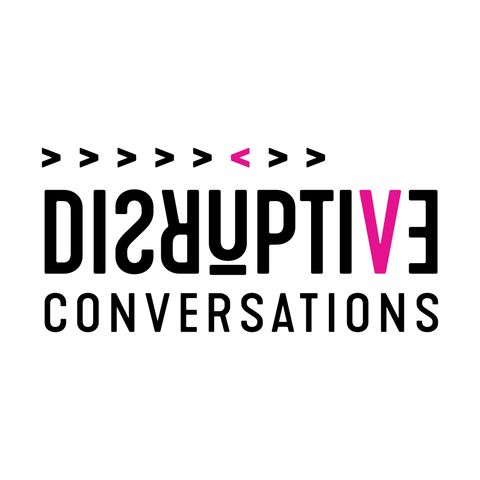S3: Ep. 90: Are you being a thought partner. A Disruptive Conversation with Hubert Saint-Onge.

Descarga y escucha en cualquier lugar
Descarga tus episodios favoritos y disfrútalos, ¡dondequiera que estés! Regístrate o inicia sesión ahora para acceder a la escucha sin conexión.
Descripción
In this conversation with Hubert Saint-Onge we explore a number of big ideas. Below are some of the ideas that stood out for me. Hold back your precocious advice giving....
mostra másHold back your precocious advice giving.
When I asked Hubert about the best lessons he has ever learned, he responded, it is about listening for what is being said? A key part of conversations is listening. Over the years, I have come to understand that listening is probably one of the best leadership skills one can work to cultivate. In this episode, Hubert reminds us to start with listening.
There is no finished work.
This simple phrase is a great reminder that we are all a work in progress. When we work within organizations, there is always room for improvement. There is no finished work. So much of the dominant discourse assumes a linear finite world that ends at some point. For example, if someone asks you when we will finish the strategy? It is a clear sign that they believe that strategy work ends. In the same way that we should think about strategy as a temporary holding position, we should also hold onto the idea that there is no finished work. I enjoyed this reminder and think it is something we can all benefit from.
Work with people to help the organization realize their full potential.
This notion is given a lot of lip service in organizations, yet so few organizations genuinely embody this simple idea. When we invest in people, they enact the full potential of the organization.
Most of us are not prone to learning agility.
Hubert cited some work he sponsored in one of his previous roles. His researchers found that 10% of people are active learners. These people are constantly willing to learn, change and adapt. 60% of people are passive learners and need to be hit across the face before they change. They are reactive learners. Finally, 30% of people are block learners who take refuge in past success. The play and act the part while their world is falling apart.
Inner Agility
Hubert and I have had many conversations about inner agility, and you can listen to a webinar where we deep dive on the topic by following this link. In short, inner agility refers to how we respond to problems. Our brains instinctively seek stability. The challenge with our brains seeking stability is that in an uncertain world, it can lead to paralysis. Instead, we need to move ourselves to a creative space where we confront the uncertainty of the world. Some of the questions Hubert presents are, how do we relax at the edge of uncertainty? How do we pay attention to the clues that we see? How do we learn from them? The goal is to avoid becoming blind to the clues that present themselves so we can adapt the new set of circumstances that are emerging and do it in a healthy way.
We need to build our ability to question our own beliefs.
Hubert discusses the idea that throughout our lifetime, we gather a set of beliefs that inform how we see and understand the world. When we encounter challenges in the world, we then draw on experience to try to address these challenges. What we need to do is develop our capacity for questioning these mindsets that once made us successful yet will no longer make us successful. The challenge is that they are difficult to identify on their own, which is why you need someone who can point them out for you.
Where am I causal?
Hubert reframes one of my favourite questions. How are you contributing to the problem? I love this way of framing the question. I love asking instead, how am I causal
This is what I need to do here to contribute positively to this situation.
In our conversation, Hubert and I talk about organizations mired in entitlement. In the conversation, we arrive at an interesting destination. Something I think many of us can relate to. Organizations that are based on entitlement; in other words, there is a culture where people believe that by being present, they don’t need to be engaged. Their presence means they are owed things. In these organizations, it isn’t easy to transform and get results. In these organizations, instead of owning their performance or learning and working to craft their future, people believe that through their presences, they have earned a reward. This part of the conversation really resonated for me and encapsulated so much of my work.
Respect the other persons view as valid.
Recently, I have been exploring this notion as I shift to the idea of better conversations. It is a challenging notion to understand. Here is the essence of the idea. Someone can have a valid view, and it may not be correct. In this conversation, Hubert and I explore our tendency to personalize things. We ask questions like, what if we started by putting issues in the middle of the table? What if we move to an inquiry mode? What if we were to embrace our own ignorance? For many of us, we tend to be declarative where the opportunity lies in moving to an inquiry mode.
Información
| Autor | Keita Demming |
| Organización | Keita Demming |
| Página web | - |
| Etiquetas |
Copyright 2024 - Spreaker Inc. an iHeartMedia Company

Comentarios